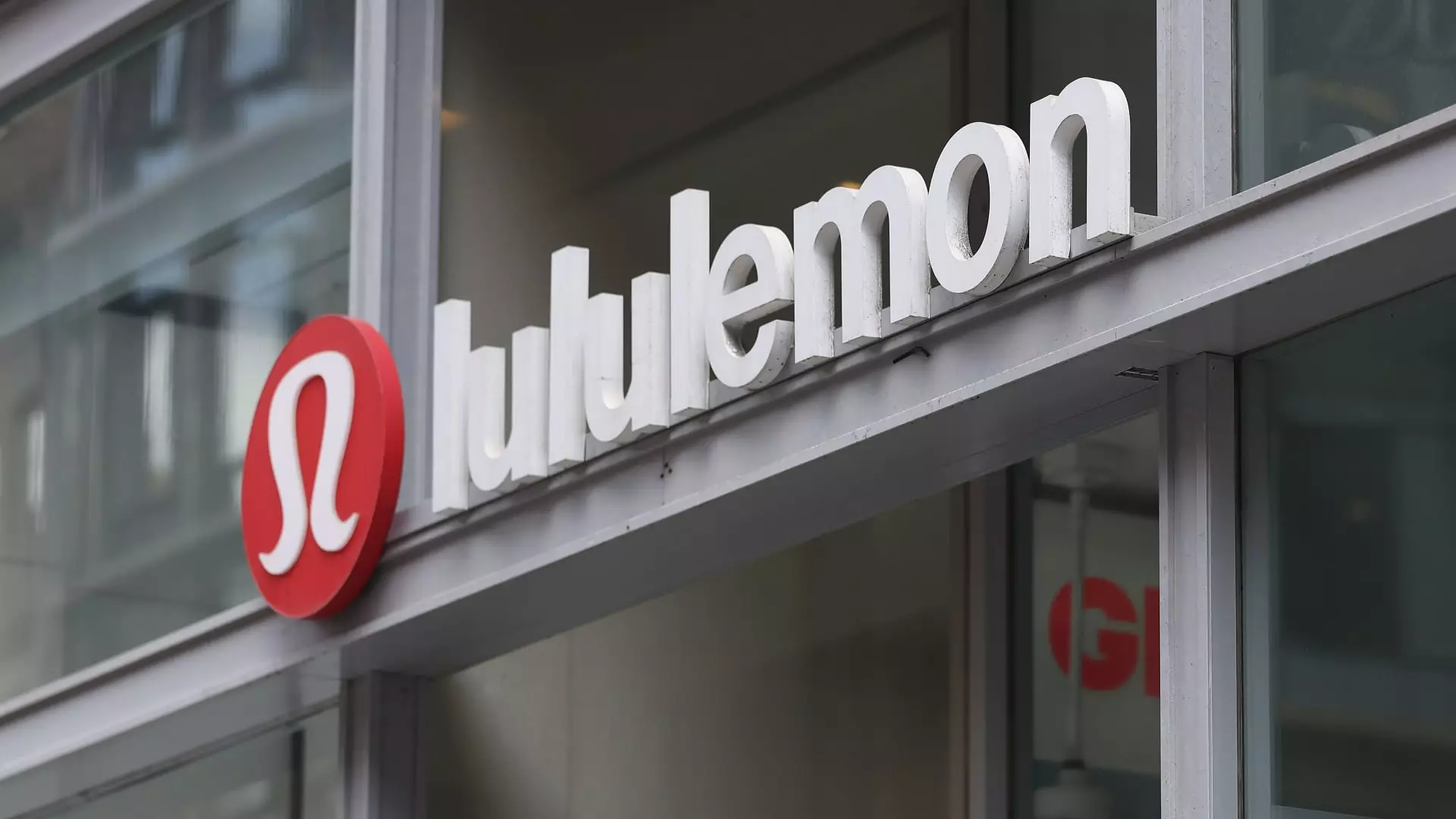The stock market can be a fickle beast, and recent tariffs imposed by the Trump administration have sparked turmoil, especially among companies that rely heavily on imports. As the news unfolds, a wave of panic has rolled through the retail and tech sectors, igniting a significant downturn that has left investors reeling. Here, we delve into how several key players are feeling the heat and what it means for the economy as a whole.
Lululemon: A Brand in Peril
No one expected the beloved athleisure giant, Lululemon, to suffer a heart-stopping 11% decline in its stock. With 40% of its products sourced from Vietnam, a nation now slapped with a staggering 46% tariff, Lululemon is walking a tightrope. The company’s reliance on overseas manufacturing is not just a logistical choice but a double-edged sword, exposing it to the whims of international trade policies. As consumers grow increasingly price-sensitive, there is a strong likelihood that higher prices will deter loyal customers, potentially jeopardizing Lululemon’s future.
Deckers Outdoor: Ugly Days Ahead
Speaking of brands dealing with mounting pressure, Deckers Outdoor, the parent company of UGG, couldn’t escape the ramifications either. Their 14% stock plunge paints a grim picture for a brand reliant on 68 supply chain partners in Vietnam alongside 125 in China. With these tariffs, they face an uphill battle to manage cost while retaining market share. The competitive landscape of the footwear market is unforgiving; one can only imagine how hard it is to pivot when you’re already up against established giants.
Big Names Like Nike Feel the Heat
Nike is another casualty of these punitive tariffs, seeing a 12.1% drop in its stock value. With approximately half of their footwear produced in China and Vietnam, the implications could be dire, especially as prices are poised to increase substantially. Nike has built its empire on appealing to consumers who value both quality and pricing, yet a financial squeeze could force it to alienate its core demographic. If the company is unable to absorb the increased costs, it risks losing the competitive edge that has made it a household name.
Discount Retailers: The Additional Burden
The discount retail sector has also felt the sting, highlighted by the losses of Five Below and Dollar Tree, down 27% and 9% respectively. These companies thrive on the volume of low-cost goods they provide, and any substantial increase in pricing will challenge their business model. Dollar Tree’s CEO suggested that they might have to boost prices, hinting at a potential alienation of their budget-conscious customers, which could be catastrophic in a market increasingly sensitive to price changes.
Banking On Troubled Waters
Financial giants like Goldman Sachs, Morgan Stanley, and JPMorgan Chase also took a hit, a reflection of the broader economic ramifications resulting from Trump’s aggressive trade policies. A nearly 8% dip in bank stocks suggests that the finance sector is apprehensive about the lingering uncertainty these tariffs bring—disruptions in trade can lead to less borrowing, stagnant investments, and ultimately a sluggish economy. The fear is palpable, and without immediate relief on the trade front, financial institutions could face significant fallout.
High-Tech Blues: Big Tech Takes a Hit
Tech stocks like Tesla, Amazon, and Apple have not gone unscathed, collectively dropping a staggering 8% in response to market fears surrounding the tariffs. If the disruption of the supply chain continues, these titans risk halting production capacity and eroding profit margins. The tech sector is built on innovation and constant market presence, and an unexpected increase in costs could push them into survival mode rather than growth.
Luxury Brands: A Market in Collapse
Here’s where it gets even more distressing. RH, the luxury home furnishings titan, experienced a shocking 43.5% decline, its worst day on record. This drastic fall was exacerbated by a weak housing market, compounded by rising tariffs that could impact the luxury consumer. In a sector where margins are already thinner, such declines can have lasting implications for brand equity and consumer sentiment.
The collective plight of these firms serves as a clarion call indicating that the impact of tariff wars extends far beyond mere numbers. With essential industries struggling and consumers caught in the crossfire, the implications could breed resentment towards both brands and policymakers. Business leaders must now navigate these treacherous waters with caution while consumers prepare for the impending financial strain. The stakes have never been higher, and the consequences of these tariffs could reverberate for many years.

